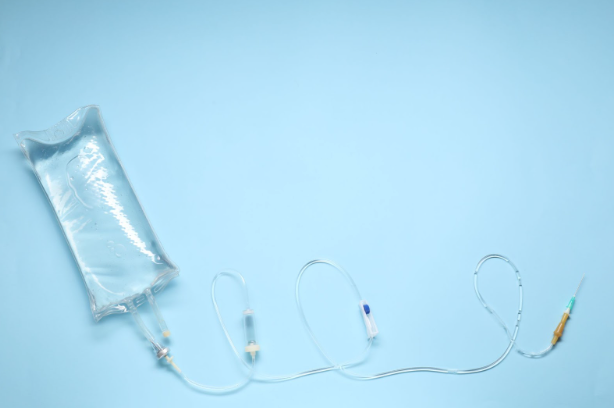Signs of Low Testosterone in Women
- Modwella

- Apr 27, 2024
- 6 min read
What is Testosterone?
Testosterone is a sex hormone, or androgen, found in both males and females. Although testosterone is often associated more with males and estrogen and progesterone are more associated with females, it’s an important hormone for both males and females. It plays a crucial role in various aspects of our health and development in both men and women, although it is generally known as a male sex hormone.
In both males and females, testosterone helps regulate important bodily functions like bone density, muscle mass, and fat distribution. It also contributes to maintaining energy levels and mood balance. Testosterone plays a role in the production of red blood cells, which are essential for carrying oxygen throughout the body.
During puberty, testosterone levels typically increase, leading to changes such as the growth of facial and body hair, deepening of the voice, and increased muscle mass. In females, testosterone produced in the ovaries and adrenal glands supports muscle strength, bone density, and libido.
Testosterone is produced by your ovaries, adrenal glands, and various tissues and cells in your body. Hormone imbalance, either too much testosterone or too little, can influence your overall health and disrupt the balance of other sex hormones in your body.
The effects of testosterone are essential for overall health and well-being in both males and females, albeit to different degrees and with varying effects. With this in mind, testosterone production is an incredibly important process in both men and women.
What Causes Low Testosterone in Women?
The amount of testosterone in the body is a key indicator of women’s health. . When a woman’s testosterone levels are sufficient she will likely feel a greater overall sense of wellness. Causes of low testosterone in women can be due to many different reasons, causing unpleasant side effects.
Menopause: As women age and enter menopause, their bodies change, and this can lead to low testosterone levels being made. Postmenopausal women, as a result, often lower total testosterone than their premenopausal counterparts.
PCOS: Polycystic ovary syndrome (PCOS), which causes small ovarian cysts, can make testosterone levels go down.
Medical Conditions: Taking treatments like chemotherapy for cancer can also make testosterone levels drop. Other medical conditions like issues with the thyroid gland or diabetes can mess with how much testosterone your body makes too. Sometimes, it's hard to know exactly why testosterone is low, so doctors might need to do more tests to find out.
Lifestyle Factors: Things we do in our daily lives, like being really stressed out, not eating healthy foods, not exercising enough, or not sleeping well, can also lower testosterone levels.
Birth Control: Certain birth control options, like combined oral contraception can contribute to testosterone deficiency as well.
Adrenal Insufficiency: Cortisol, the hormone made by the adrenal glands, can affect testosterone levels in blood. When too much cortisol is present in the bloodstream, the levels of testosterone are significantly reduced.
What are Symptoms of Low Testosterone in Women?
Low testosterone can show up in lots of different ways, and it's not just one thing. Some folks might feel really tired or have a hard time concentrating. Others might notice changes in their mood, like feeling sad or irritable. For some, it can affect their sex drive, resulting in low libido. Here are some of the most common symptoms of low testosterone that women experience:
Low Sex Drive
Low testosterone can lower sexual desire in women. It might make them feel less interested in having sex or being intimate. This can happen because the testosterone hormone levels help regulate the sex drive. When levels of testosterone are low, it can affect how much someone wants to be close with their partner. Alternatively, when someone has high testosterone, their It's essential to know that low sex drive can be caused by many things, not just low testosterone.
Low Energy
Low levels of testosterone can make women feel tired and low on energy. That's because testosterone is involved in red blood cell production which helps keep our energy levels up. When levels are low, it can be harder to feel energetic and motivated. Women might find themselves feeling more tired than usual, even after getting enough sleep. This lack of energy can make it challenging to do daily tasks or enjoy activities.
Thinning Hair
Low testosterone in women can lead to problems with hair growth, resulting in thinning hair. Testosterone helps keep hair healthy and strong. When levels are low, hair might become thinner and weaker over time. Women may notice more hair falling out or their hair looking less full than before. This thinning can happen on the scalp or even in other places where hair grows, like the eyebrows.
Trouble Conceiving
Low testosterone can make it harder for women to get pregnant. Testosterone plays a role in making healthy eggs and regulating the menstrual cycle. When a woman has low t, it can disrupt these processes, making it difficult for a woman to conceive. Low testosterone might also affect the quality of the eggs produced, making it harder for them to fertilize. This can lead to difficulties in getting pregnant.
Vaginal Dryness
Low testosterone can contribute to vaginal dryness in women by affecting the health and function of vaginal tissues. Testosterone helps maintain the thickness and elasticity of the vaginal lining, as well as promotes blood flow to the area. When testosterone levels are low, the vaginal tissues may become thinner, less elastic, and produce less natural lubrication.
This can lead to discomfort, pain, and irritation during sexual activity or even everyday movements. Decreased blood flow to the vaginal area can further exacerbate dryness. Hormonal changes, including low testosterone, can disrupt the delicate balance of vaginal moisture, resulting in vaginal dryness.
Depression and Anxiety
Testosterone can have a significant impact on mood. It's often linked to feelings of well-being, confidence, and motivation. When testosterone levels are balanced, it can contribute to a positive mood, increased energy, and a sense of vitality. On the other hand, low testosterone levels can lead to mood swings involving irritability, low mood, or even feelings of depression.
Testosterone influences the production of neurotransmitters like serotonin and dopamine, which play key roles in regulating mood. Therefore, fluctuations in testosterone levels can directly affect these neurotransmitters, influencing mood and emotional state. Overall, maintaining balanced testosterone levels is important for promoting emotional well-being.
Dry skin
Low testosterone levels can contribute to dry skin by affecting the body's ability to produce oils. Testosterone helps regulate the production of sebum, which is a natural oil that moisturizes and protects the skin. When testosterone levels are low, the body may produce less sebum, leading to dryness and flakiness of the skin. Additionally, low testosterone can impact collagen production, which is crucial for maintaining skin elasticity and hydration.
Trouble Sleeping
Low testosterone can make it hard for women to sleep. Testosterone helps regulate sleep patterns, so when levels are low, it can disrupt the sleep-wake cycle. Women with low testosterone might have trouble falling asleep or staying asleep through the night. They may also experience poor sleep quality, leading to feeling tired during the day. Difficulty sleeping can affect mood, energy levels, and overall well-being.
Along with this, muscle weakness and aching are also common in women with low testosterone, which can make sleeping all the more difficult.
How to Treat Low Testosterone in Women
Luckily, there are several ways to treat low testosterone in women. After you receive lab panels of blood tests from your healthcare provider, you can explore treatment options. A few of the most common low testosterone treatments include:
Hormone Replacement Therapy
Testosterone replacement therapy is a treatment for low testosterone that has been approved by the Federal Drug Administration (FDA). Testosterone replacement therapy (TRT) works by giving the body extra testosterone when its own production is low. It can come in different forms, like gels, patches, injections, or pills. Once taken or applied, the testosterone gets into the bloodstream and helps to raise the body's testosterone levels.
This can improve symptoms caused by low testosterone, such as low energy, reduced muscle mass, and mood changes. However, TRT isn't suitable for everyone, and it's essential to discuss the risks and benefits with your healthcare provider. Regular check-ups are also necessary to ensure the therapy is working safely and effectively.
Contact Modwella to Schedule Your In-Home Hormone Replacement Service Today
Contact Modwella today to schedule your in-home hormone replacement service. Our experienced team is dedicated to providing convenient and personalized hormone therapy solutions tailored to your needs.
With our in-home service, you can receive expert care in the comfort and privacy of your own home. Take the first step towards feeling your best by reaching out to schedule your appointment. Don't wait any longer to regain control of your health and well-being with Modwella's hormone replacement therapy.
.png)



Comments